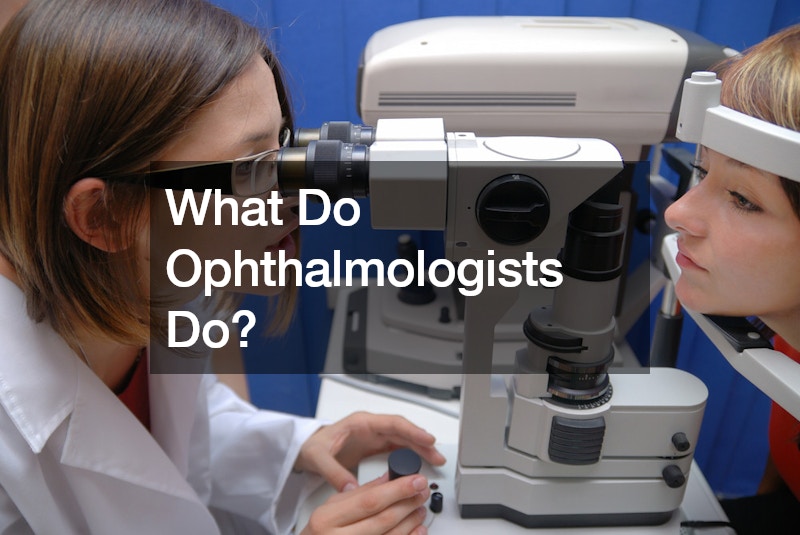
Ophthalmologists are medical specialists who focus on the management of eye diseases, diagnosis, and surgical interventions. The field of ophthalmology is characterized by its profound appreciation for the complexity and beauty of the eye, as well as the meticulous work involved in preserving and restoring vision.
Training to become an ophthalmologist is a rigorous process that spans approximately 14 years. This journey begins with undergraduate studies, where aspiring ophthalmologists cultivate a passion for healthcare and embark on a path of academic and professional growth.
Throughout medical school, internship, and residency, ophthalmologists-in-training accumulate over 16,000 hours of direct patient contact, honing their diagnostic skills and clinical expertise.
During their training, ophthalmologists undergo specialized instruction in the diagnosis and management of a wide range of eye conditions. This comprehensive education equips them to address various issues affecting ocular health, from common ailments like refractive errors and dry eye syndrome to more complex diseases such as glaucoma and macular degeneration.
A significant aspect of an ophthalmologist’s practice involves surgical intervention. Procedures like cataract surgery require meticulous precision and expertise. Ophthalmologists utilize advanced surgical techniques and microsurgical instruments to perform delicate procedures, often likened to assembling a ship in a bottle due to their intricate nature.
The responsibilities of an ophthalmologist extend beyond surgical interventions. They play a crucial role in providing comprehensive eye care, including routine eye exams, prescription of corrective lenses, and management of chronic eye conditions. By leveraging their specialized knowledge and skills, ophthalmologists help patients maintain optimal vision and overall ocular health.
The impact of ophthalmologists’ work extends far beyond the operating room. Restoring or preserving vision for patients is a profoundly rewarding experience. Whether it’s removing a cataract, treating glaucoma, or performing corrective laser eye surgery, ophthalmologists have the privilege of making a tangible difference in their patients’ lives.
Moreover, the trust placed in ophthalmologists by their patients is immense. The decision to undergo eye surgery requires a significant level of trust, as patients entrust their vision and well-being to the hands of their ophthalmologist. This trust underscores the importance of the rigorous training and certification process that ophthalmologists undergo to ensure they are proficient in addressing their patients’ medical needs.
In their day-to-day practice, ophthalmologists engage in a diverse range of activities aimed at addressing the unique needs of each patient. This may include conducting comprehensive eye examinations to assess vision and detect any abnormalities or diseases. Ophthalmologists also consult with patients to discuss treatment options and provide guidance on maintaining optimal eye health. Additionally, they may perform surgical procedures such as LASIK or corneal transplants to correct vision impairments or alleviate ocular conditions. Ophthalmologists often collaborate with other healthcare professionals, including optometrists and primary care physicians, to ensure coordinated and comprehensive care for their patients.
Beyond the clinical aspect of their work, ophthalmologists also play a vital role in educating the public about eye health and disease prevention. By raising awareness about common eye conditions and promoting regular eye exams, they empower individuals to take proactive steps towards preserving their vision.
Ophthalmologists and optometrists are both crucial healthcare providers specializing in eye care, but they differ significantly in their training, scope of practice, and areas of expertise.
Ophthalmologists are medical doctors who undergo extensive training, including undergraduate studies, medical school, internship, and residency. They specialize in diagnosing and treating eye diseases, prescribing medications, performing surgeries such as cataract removal or laser eye surgery, and managing complex eye conditions like glaucoma or retinal disorders. Ophthalmologists have the authority to provide comprehensive eye care, including medical and surgical interventions, making them primary eye care providers.
In contrast, optometrists are healthcare professionals who complete a Doctor of Optometry (OD) degree program, typically lasting four years after undergraduate studies. While optometrists are trained to diagnose and treat common eye conditions like refractive errors (e.g., nearsightedness, farsightedness, astigmatism) and prescribe corrective lenses (glasses or contact lenses), their scope of practice is limited compared to ophthalmologists. Optometrists primarily focus on routine eye examinations, vision testing, prescribing glasses or contact lenses, and providing preventive care and management of non-surgical eye conditions. When necessary, optometrists may refer patients to ophthalmologists for specialized treatment or surgical intervention.
In conclusion, ophthalmologists are indispensable healthcare professionals who specialize in the diagnosis, management, and surgical treatment of eye diseases. Their extensive training, clinical expertise, and commitment to patient care make them invaluable members of the healthcare community. Through their dedication and skill, ophthalmologists help improve the quality of life for countless individuals by safeguarding one of our most precious senses: vision.
.




